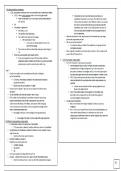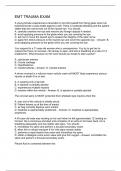Summary
Summary Summaries for priv372
- Course
- LLB Law (PRIV372)
- Institution
- Stellenbosch University (SUN)
The document contains detailed descriptions in the form of mind-maps for visual learners. It includes various class notes along with case discussions and gives an in depth description of the work. It includes questions and has helped over 40 students to pass the module.
[Show more]











